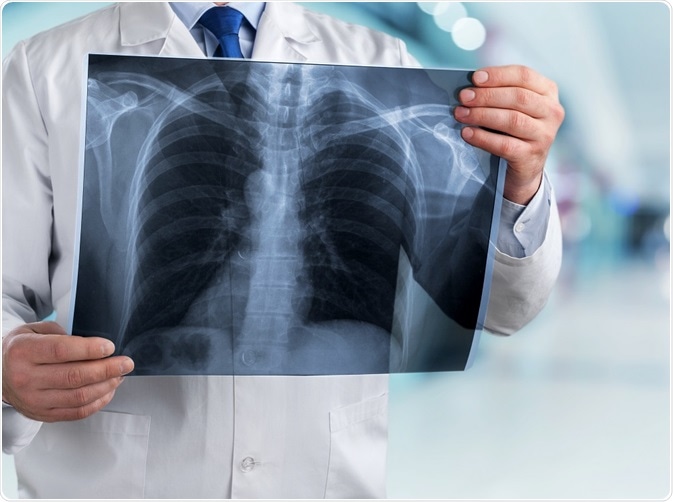Lung cancer is a common and very serious form of cancer, with more than 40,000 people diagnosed with the condition each year in the UK. Throughout their cancer journey, most patients will have questions about their condition. This article will attempt to address some of these questions.
 Billion Photos | Shutterstock
Billion Photos | Shutterstock
Lung cancer does not usually present with symptoms until it has reached an advanced stage, which means patient outcomes are often less positive than with some other forms of cancer. Research has shown that around one in three people diagnosed with lung cancer will live for one year or more, but only one in ten will live for five years or more.
How does cancer arise?
There are trillions of cells in the body and these cells grow, multiply and eventually die out. This cell life cycle is determined by the instructions contained in the cell nucleus, in the form of DNA.
If this DNA becomes damaged, the cycle is disrupted and cells can grow uncontrollably. This is the basis of cancer, as the uncontrolled cell growth leads to the development of a tumor, which can be malignant if it is invasive and likely to spread.
What are the different types of lung cancer?
Lung cancer can occur in two ways, as follows:
- Primary lung cancer – cancer that begins in the lungs.
- Secondary lung cancer – cancer that originated in another part of the body and has spread to the lungs.
Primary lung cancer can be further classified into two main types based on the cells involved:
- Non-small-cell lung cancer – This is the most common type of lung cancer and accounts for over 80% of all cases. Depending on which cell types have become cancerous, non-small-cell lung cancer is subdivided into the following types:
- Squamous cell carcinoma
- Adenocarcinoma
- Large-cell carcinoma
- Small-cell lung cancer – This type of lung cancer is less common and is more aggressive, spreading much more quickly than non-small-cell lung cancer
How is lung cancer diagnosed and treated?
Lung cancers are rare in people under the age of 40. Diagnosis is usually suspected based on the patients medical history including the presence of risk factors for the condition and on the patient’s symptoms, a blood test and imaging studies such as X-ray, computed tomography (CT) scan, and magnetic resonance imaging (MRI) scan. The diagnosis is confirmed by taking a biopsy sample and sending it for further testing.
The treatment of lung cancer depends on which type of cancer a patient has, how far the cancer has progressed and the patient’s general state of health. When diagnosed early and if the cancer cells are confined to one small area, the cancer is usually surgically removed.
In cases where surgery is not considered an appropriate option due to a poor health status, radiotherapy may be advised. If the cancer is too advanced to be treated with surgery or radiotherapy, chemotherapy may be prescribed instead.
How can I reduce my risk of lung cancer?
Smoking tobacco is the single largest risk factor for lung cancer, accounting for over 90% of cases. There are more than 60 different toxins in tobacco smoke that can cause cancer and these are referred to as carcinogens.
Although tobacco smoking is the main risk factor for lung cancer, other tobacco products such as pipe tobacco, cigars, chewing tobacco and snuff can also raise the risk of lung cancer and other forms of cancer such as mouth cancer and esophageal cancer.
Quitting smoking can therefore significantly reduce the risk of developing lung cancer as well as other forms of cancer.
Other factors that increase the risk of lung cancer include smoking cannabis, passive smoking, exposure to radon and occupational exposure to certain substances including asbestos, arsenic, cadmium, coal, coke, beryllium, silica and nickel.
Further Reading